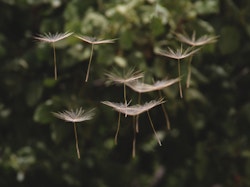In the first round of the Una Europa Seed Funding competition, 12 new research projects will receive seed funding. “Overall, we are very satisfied,” says Dr. Herbert Grieshop, Director of International Affairs at Freie Universität, who oversaw the competition with Emily Palmer, Secretary General of Una Europa. “This first funding round indicates that this format acts as a kind of seismograph for the common research interests of researchers among the Una Europa partners.” A total of 39 projects were submitted. “Many more of these projects would have been worthy of funding,” says Emily Palmer. Given the overwhelming interest triggered by the call and the good quality of the proposals submitted, the Board of Directors agreed to fund an additional two projects, taking expenditure to almost EUR 156,000. Thematically, the projects were very diverse and covered almost all disciplines.
A selection committee consisting of members of all the Una Europa universities made the funding decisions on a competitive basis. The most important criteria were the academic quality of the project, the long-term impact, and the potential for implementation. “An important factor was also how many Una Europa partner universities are involved – the more, the better,” explains Herbert Grieshop. Overall, he said it was impressive to see how many well-founded and innovative research ideas were created or expanded within the framework of the network in a short period of time. The call for proposals ran over three months.
" An important factor was also how many Una Europa partner universities are involved – the more, the better. "
Herbert Grieshop, Director of International Affairs at Freie Universität Berlin
Two projects with all eight partners on board
Two of the twelve projects involve researchers from all eight Una Europa universities at once:
The selected project “One Health as an emerging focus area for Una Europa” (UNA-OH) will be launched simultaneously with the launch of the fifth Focus Area of Una Europa. The participating researchers from different fields deal with the topic of health risks in connection with climate change and urbanization. The aim of the project is to promote further developments in research, education, and technology transfer with regard to the topic of “One Health” in order to combat new health risks in the increasingly globalized industrial societies. In particular, the project aims to start and synchronize activities in research and education in the area of One Health within the Una Europa network. The background of the project, the spread of emerging infectious diseases and resistance to antimicrobial agents, could not be more topical.
The second project involving the entire network deals with the dialogue between political decision makers and researchers. The seed funding will be used to set up an interdisciplinary Una Europa research group on the topic of global governance.
The other projects cover a very diverse range of topics:
- the colours of the Middle Ages,
- the Italian poet and philosopher Dante Alighieri,
- humour in public spaces,
- language and religion,
- hate speech,
- DNS nanostructures as targeted pharmaceuticals,
- the development of critical digital health pedagogies for teachers of physical education,
- a collaborative UNAEUROPA service-learning network to transform teaching and learning in the European Space of Higher Education,
- environmental plant cell signalling, and
- CO2 capture applied to waste combustion.
An incentive for long-term collaboration
“With the seed funding we aim to incentivize long-term cooperation within the Una Europa alliance,” says Emily Palmer. The initiators also hope that this competition will lead to new forms of cooperation. For the second funding call, the procedure will be adjusted slightly based on the experiences with the first pilot call. “It has become apparent that the contexts and associated requirements and conventions at the universities are very different,” notes Herbert Grieshop. For example, the projects were difficult to compare in terms of budget planning. “We are therefore looking into simplifying the financial processes.”
The seed funding competition is to take place once a year. It is open to researchers from the participating universities. The next application period for projects in 2021 is expected to open in late June.
Story by Lena Pflüger, Freie Universität Berlin



